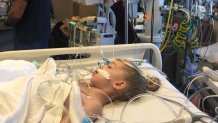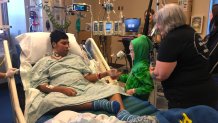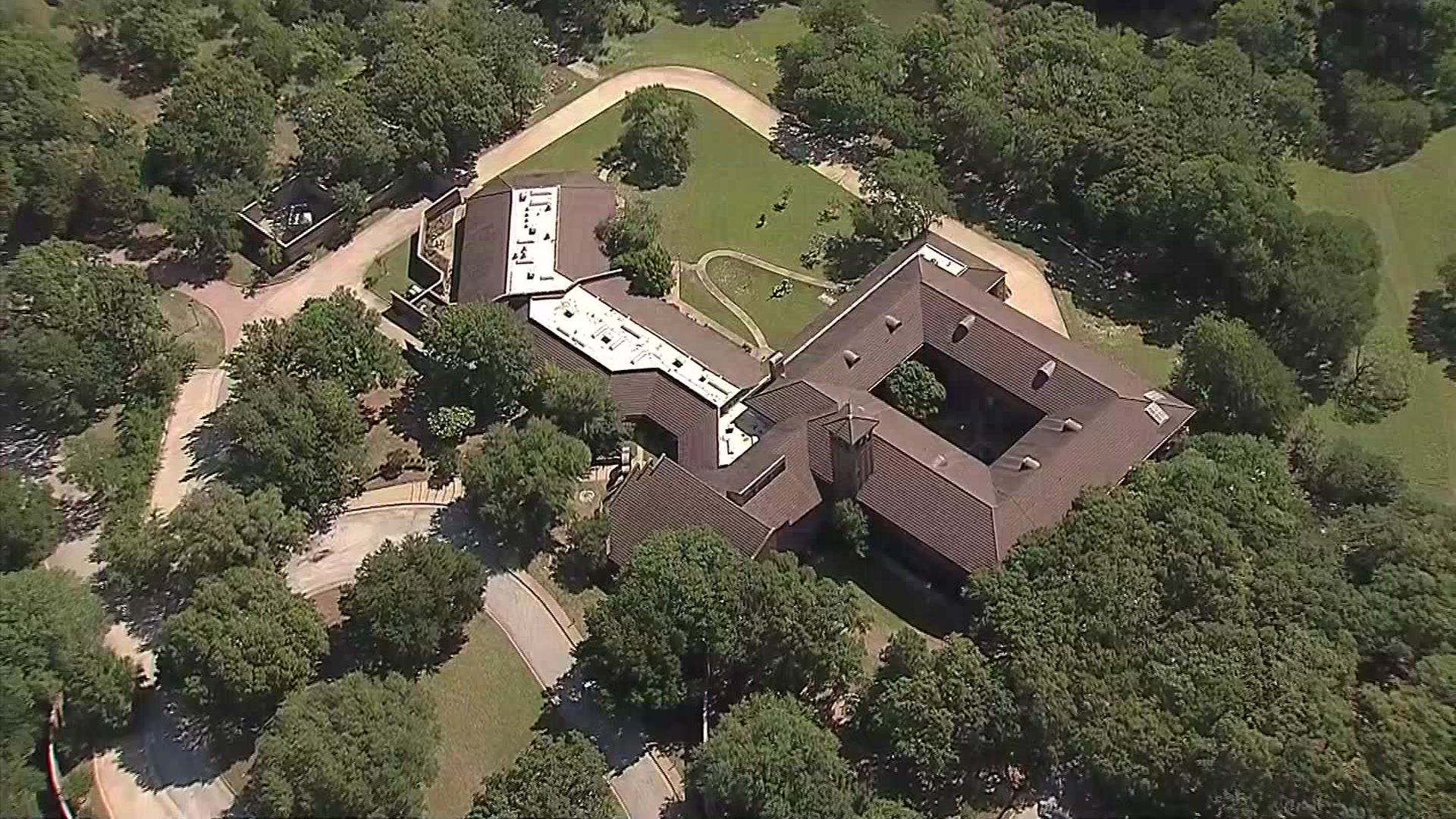An 8-year old Fort Worth girl is sharing her heart transplant journey to raise awareness of how heart failure can happen to anyone at any age.
Just two years ago, Riley Robinson got sick with what her parents thought was a simple cold. Her three sisters were also sick with a cold so it didn't seem out of the ordinary. Riley was quickly taken to the family doctor.
“It was November, and it was close to Thanksgiving. Riley just couldn’t seem to kick it," said Lisa Robinson, Riley's mom. "Right after the X-rays were taken, she called me and said you need to take her to the ER."
Her parents took her to the emergency room and it suddenly turned into something far worse than her family ever imagined.
“We got to Cook Children's and they started talking about heart failure and I was like, 'No, we’re here for a cold, maybe some fluid in her lungs. And they’re like no she needs to go to ICU cardiac unit," Lisa said. “It was shocking. She was healthy girl with no problems. Born at home. She was just a healthy girl. And now we’re having heart failure at 7 years old."

She was transferred to Children's Medical Center Dallas where the medical team saw the left side of her heart wasn’t pumping enough blood and then, the right side failed as well. Just three days into the hospital, she had her first open heart surgery.
Local
The latest news from around North Texas.
“She was declining and nurses were so scared to work in her room because was so close to death," Lisa said. “I wasn’t aware that you could have a cold in your immune system could get confused and attack your heart instead of attacking the cold.”
Her only chance to live was a new heart so she was put on the transplant waitlist.
In the meantime, she had a Ventricular Assist Device inserted to help her heart pump blood and keep her alive while she waited for a heart.
“She got an external pump and with that, you just have really big cables coming out of your belly and it’s doing the job of the right side, it’s pumping the blood for you and that’s when Riley started to get better," said Lisa.
After six months of waiting, Riley received her "angel" heart in May 2019.
“Choose life for someone else. Let someone like Riley come home and be with her sisters. Because she could not leave that hospital until she had that, her heart was so sick," Lisa said.
Since then, Riley has been doing great and is a happy student at Calvary Christian Academy, a community her mom says stepped up to help with hot meals, babysitting for her other girls and overwhelming support for the Robinsons.
“I feel great. I like being here with my sisters and my friends. When I was at the hospital, I didn’t like it as much as being here," Riley said.
Riley said staying active at the hospital and the power of prayer helped her to heal. She even had bike races with her doctors in the hospital hallways and visited other sick children in their beds to encourage them to stay strong.

“It’s OK for them to be afraid because I was, too. But during those times, it’s better for you to get up and be active and pray," Riley said. "With prayers, you can get stronger."
Dr. David Sutcliffe, pediatric cardiologist at Children’s Health and assistant professor at UT Southwestern, is one of Riley's cardiologists. He explained how common heart failure can happen in seemingly healthy children.
"Congenital heart disease is the most common birth defect with 40,000 new diagnoses per year and 1 million affected children nationwide," he said. "All have the risk of developing heart failure. New cardiomoypathies are diagnosed at a rate of ~5,000 per year. Heart failure admissions in children occur on the order of 14,000 per year and often end-stage heart failure is diagnosed at presentation."
Dr. Sutcliffe said there are medical advancements that are helping people with even the most dire heart conditions to live fulfilling lives.
"Heart transplant is a well-established and effective therapy for end-stage heart failure, but the risk or dying while waiting for a heart transplant is higher than any other organ," he said. We have therefore turned to mechanical pumps called ventricular assist devices (or VADs) to provide improved circulation and stability to allow for a safe and stable waitlist course despite on-going heart failure."
Children's Health is the only center in North Texas to have access to such devices for kids, which is how Riley was able to wear a VAD while waiting for her heart. The hospital is one of only three in the region to offer this therapy.
Riley said she continues to visit those friends she made at the hospital and is also taking part in medical trials to help doctors better understand her condition so they can help more children.
She also wears a special locket around her neck with charms signifying important virtues of her life: prayer, faith, love and hope.
“The prayer is because a lot of people prayed for me. And I like to keep it in here so I would be reminded that a lot of people love me and they want me to get better," said Riley. "Faith is to have faith in God. Love is that my whole family loves me. And hope, because a lot of people really hoped that I would get a heart so that they would be able to be with me.”

According to the Heart Failure Society of America, heart failure directly accounts for about more than 8 percent of all heart disease deaths in the United States. While it's common in adults, doctors said it can happen suddenly in teens, toddlers and even newborns if pre-existing heart conditions aren't caught in time.




